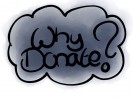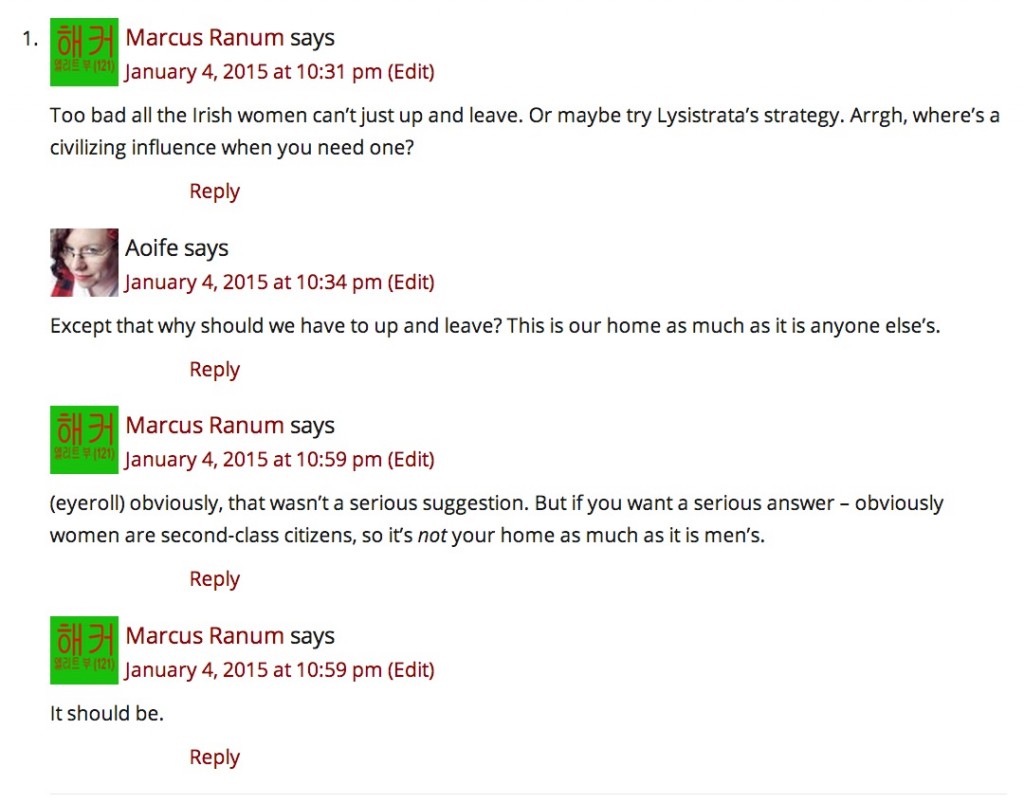Killing people is not okay. Okay? The Venn diagram of when people kill people and when it’s okay to kill people is two almost completely unattached circles, connected only at the point where the person being killed was trying to kill someone else first and the only way to stop it was to kill them right back. That’s basically it. And even then, if I’m being honest, it’s only okay in the sense that it’s the least bad of a bunch of terrible options.
I’ve just gotta get that out of the way, since it seems that any attempt to inject a bit of nuance into conversations surrounding people killing white westerners is interpreted as a defence of the people doing the killing.
To state another thing for the record: there was absolutely nothing okay or justified about the Charlie Habdo killings yesterday. Nothing. It was a vile act. My heart goes out to the people mourning their loved ones today. Nobody deserves that.
Clear? Okay.
Within that context, let’s talk about #iamcharlie.
The first thing to to understand here: we don’t live in a world of good guys and bad guys. The fact of people being murdered horribly exists on it’s own. It doesn’t imply that the victims are people who we should emulate. A person can be a victim of a heinous crime and still have done questionable things.
Here’s a problem with #jesuischarlie: Charlie Hebdo, from what I can gather, was a publication that produced and distributed vile, racist material in the guise of satire. Unlike any satire worth the name, it punched down at already-marginalised minorities in an environment that just encouraged an intensification of preexisting anti-Muslim sentiment.
Muslims in the West are disproportionally targeted for abuse and attacks, as are people perceived to be Muslim- normally due to their names and the colour of their skin. There’s an ugly strain of racism running through so much discourse that puts itself up as “just criticising Islam”, that you can’t ignore. There’s a lack of nuance to how we talk about Islam, as well. People talk about something called the “western world” juxtaposed against the “Islamic world”, as if these are two entirely separate and self-contained things, ignoring the fact that there is and has always been both massive diversity within, and massive mixing between, Islamic and Christian cultures the world over.
Also? I strongly believe that if you want to tackle extremism, the way to do it isn’t to further alienate people who your society has already been marginalising.
This is what Charlie Hebdo was doing.
We can condemn murdering people without valorising victims.
I don’t want a response to murder that punches down. In the wake of the Charlie Hebdo attacks, at least three (at the time I’m writing this) French mosques have been attacked in ‘retaliation’. That is not okay.
It is also not okay to respond to the murder of people who were doing problematic things by repeating the worst things that they did.
When you say “I am Charlie Hebdo” and repost their racist, islamophobic (and most importantly inaccurate) cartoons, you’re not standing up for freedom of speech. You’re valorising hate speech and bullying of oppressed groups.
We don’t have to be Charlie Hebdo, or to repost their work, to condemn utterly the actions of their murderers. We are not Tinkerbell, only able to feel one thing at a time. If our response is to mean anything other than self-congratulatory grandstanding, we have to take into account that terrible, undeserved things happen to people to who did fucked-up things. We have to hold that seeming-contradiction and understand that it is not so.
We don’t have a choice between being Charlie Hebdo or the people who killed there. We don’t have to respond to attacks on freedom of speech by saying that all speech is okay simply because it was said. We don’t have to ignore the context in which violence- be it physical or otherwise- happens in order to condemn it.
I am not Charlie Hebdo.
I deeply value my right to speak more or less as I please. I value the privilege of the platform I have to speak on. I am aware that that right and privilege comes with incredible responsibilities to be thoughtful and accurate, as far as I can to help more than I harm, and to be receptive- within reason, since this is the internet after all- to critique.
It is possible to value one’s rights and simultaneously to refuse to support the abuse of those rights. And it is possible to refuse to support the abuse of a right, while simultaneously condemning utterly, entirely and without reservation those who would respond to that abuse with murder.
It’s more than possible. If we’re to actually make anything better, it’s essential.
Even bloggers have to pay the bills! Monthly subscriptions- no matter how small- help give me the security to devote time to this place and keep a roof over my head:





